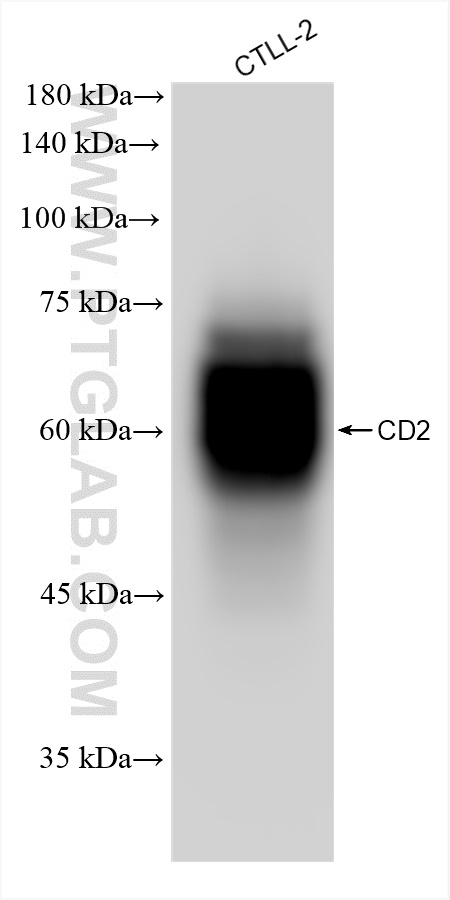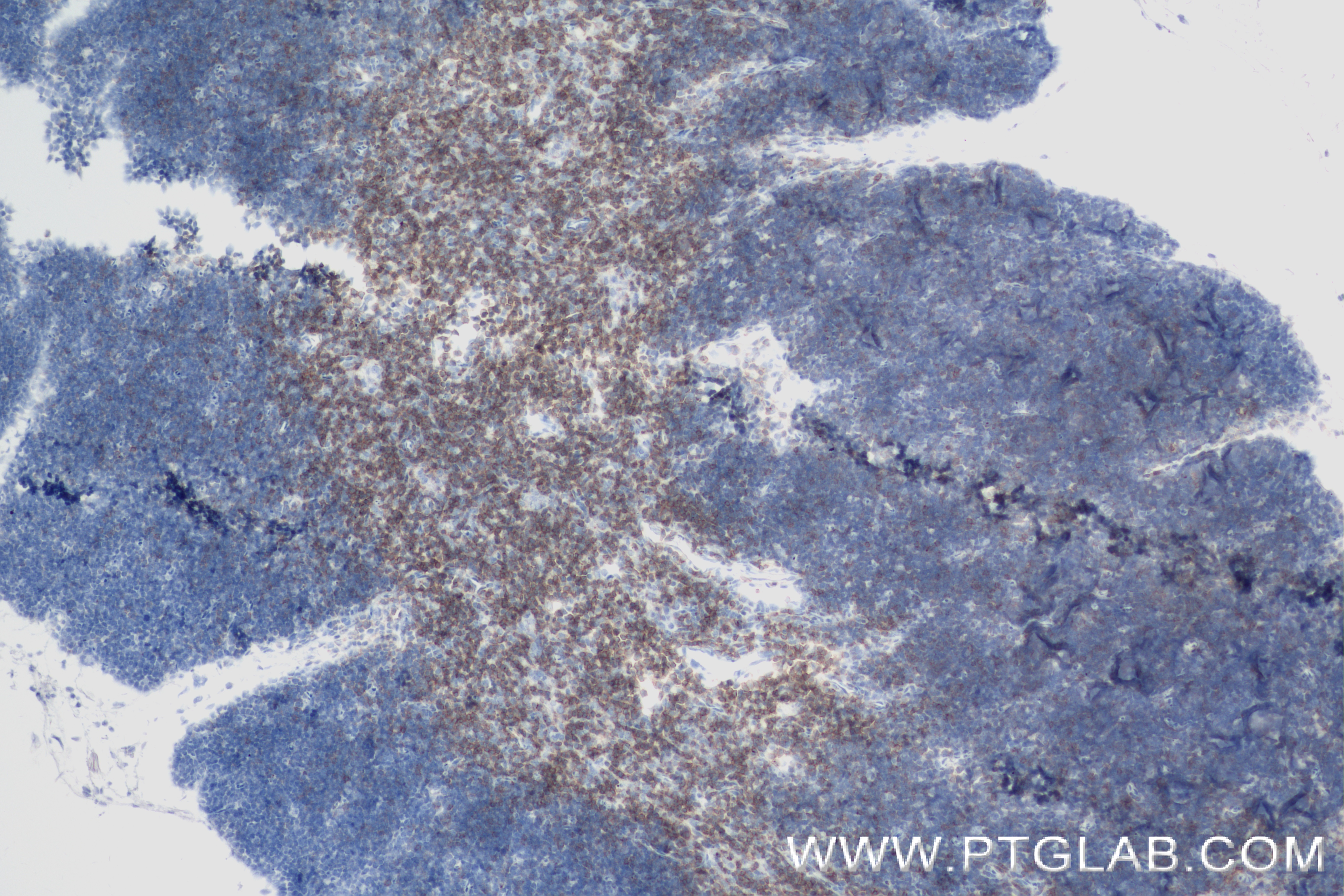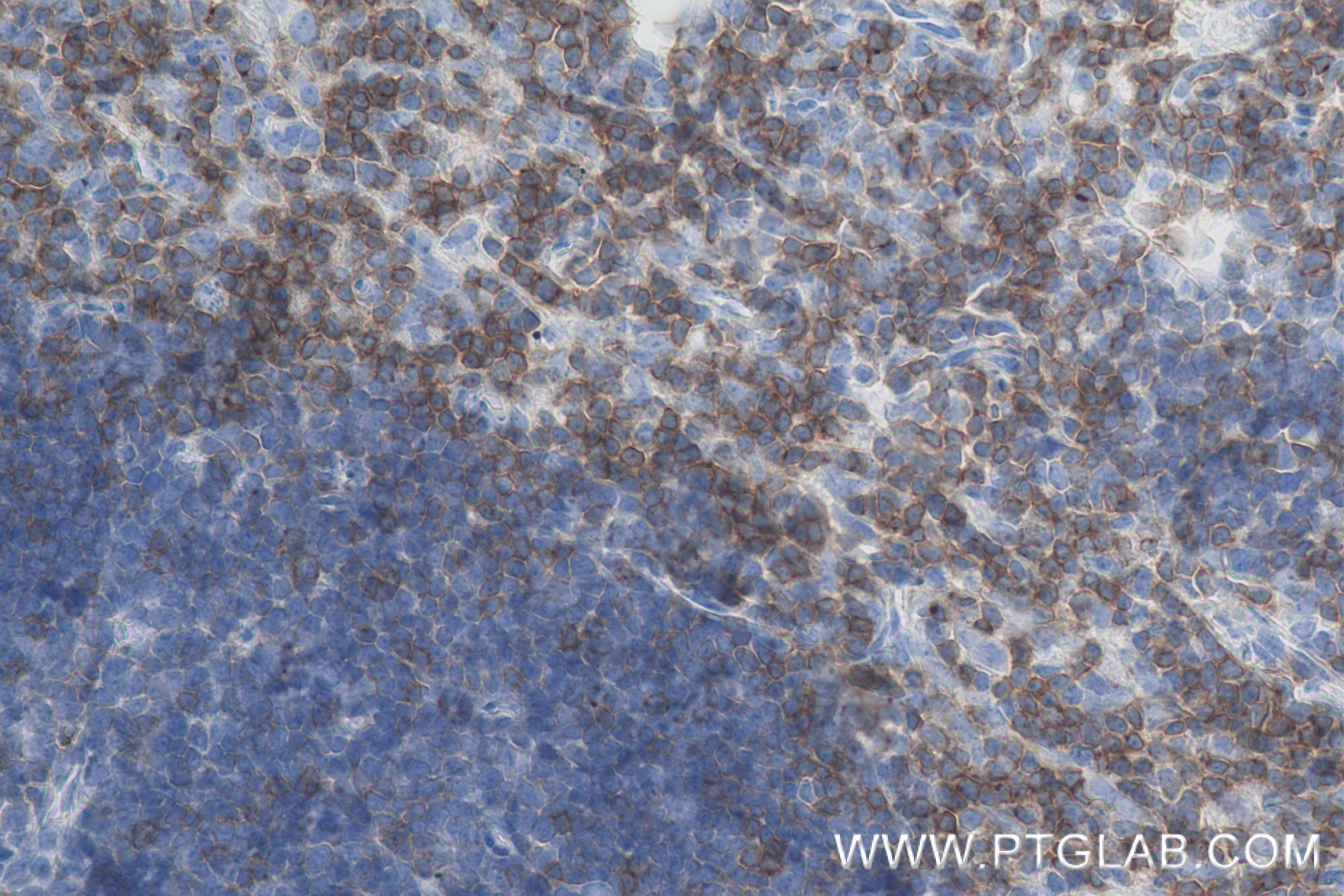验证数据展示
经过测试的应用
| Positive WB detected in | CTLL-2 cells |
| Positive IHC detected in | mouse thymus tissue Note: suggested antigen retrieval with TE buffer pH 9.0; (*) Alternatively, antigen retrieval may be performed with citrate buffer pH 6.0 |
推荐稀释比
| 应用 | 推荐稀释比 |
|---|---|
| Western Blot (WB) | WB : 1:500-1:2000 |
| Immunohistochemistry (IHC) | IHC : 1:500-1:2000 |
| It is recommended that this reagent should be titrated in each testing system to obtain optimal results. | |
| Sample-dependent, Check data in validation data gallery. | |
产品信息
84360-4-RR targets CD2 in WB, IHC, ELISA applications and shows reactivity with mouse samples.
| 经测试应用 | WB, IHC, ELISA Application Description |
| 经测试反应性 | mouse |
| 免疫原 |
FusionProtein 种属同源性预测 |
| 宿主/亚型 | Rabbit / IgG |
| 抗体类别 | Recombinant |
| 产品类型 | Antibody |
| 全称 | CD2 antigen |
| 别名 | T-cell surface antigen CD2, Lymphocyte antigen 37, Ly-37, LFA-3 receptor, LFA-2 |
| 计算分子量 | 38 kDa |
| 观测分子量 | 60 kDa |
| GenBank蛋白编号 | NM_013486.2 |
| 基因名称 | CD2 |
| Gene ID (NCBI) | 12481 |
| RRID | AB_3671898 |
| 偶联类型 | Unconjugated |
| 形式 | Liquid |
| 纯化方式 | Protein A purification |
| UNIPROT ID | P08920 |
| 储存缓冲液 | PBS with 0.02% sodium azide and 50% glycerol, pH 7.3. |
| 储存条件 | Store at -20°C. Stable for one year after shipment. Aliquoting is unnecessary for -20oC storage. |
背景介绍
CD2 is a cell surface glycoprotein present on a majority of thymocytes, all mature T cells and subset of NK cells but not on B lymphocytes. It is a pan T-cell marker. CD2 interacts with lymphocyte function-associated antigen (LFA-3/CD58) and CD48/BCM1 to mediate adhesion between T-cells and other cell types. CD2 is implicated in the triggering of T-cells, the cytoplasmic domain is implicated in the signaling function.
实验方案
| Product Specific Protocols | |
|---|---|
| IHC protocol for CD2 antibody 84360-4-RR | Download protocol |
| WB protocol for CD2 antibody 84360-4-RR | Download protocol |
| Standard Protocols | |
|---|---|
| Click here to view our Standard Protocols |




